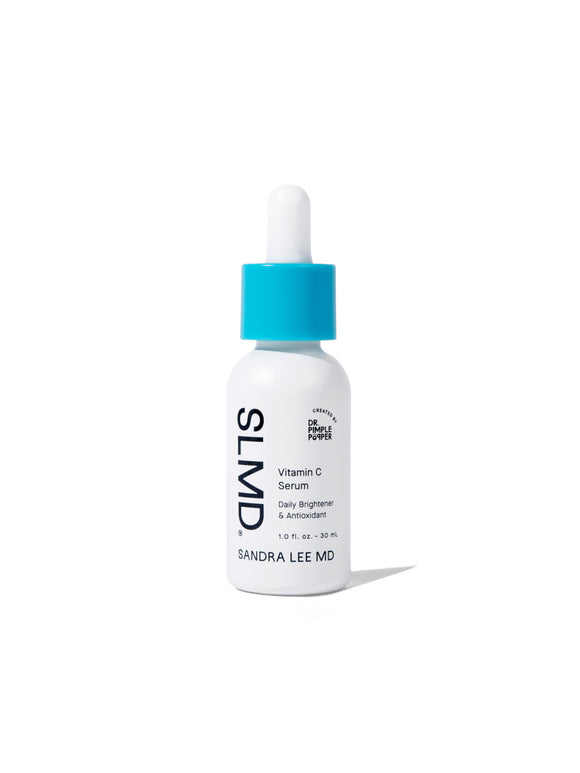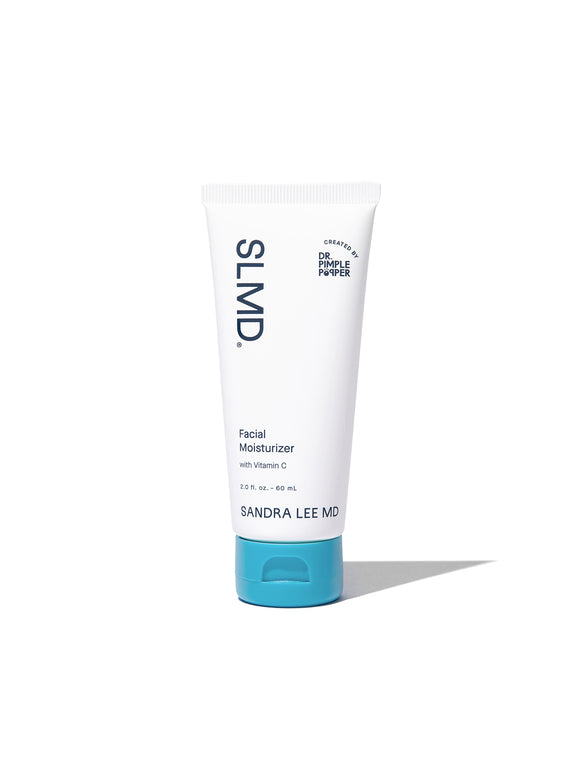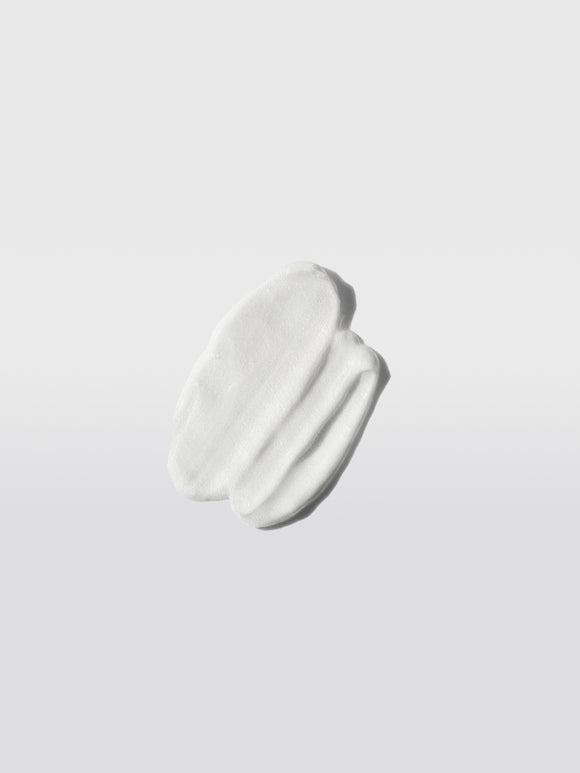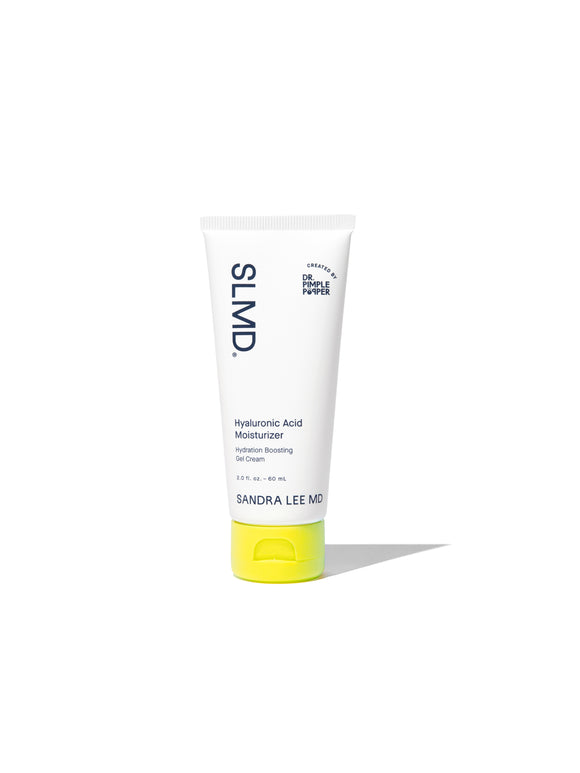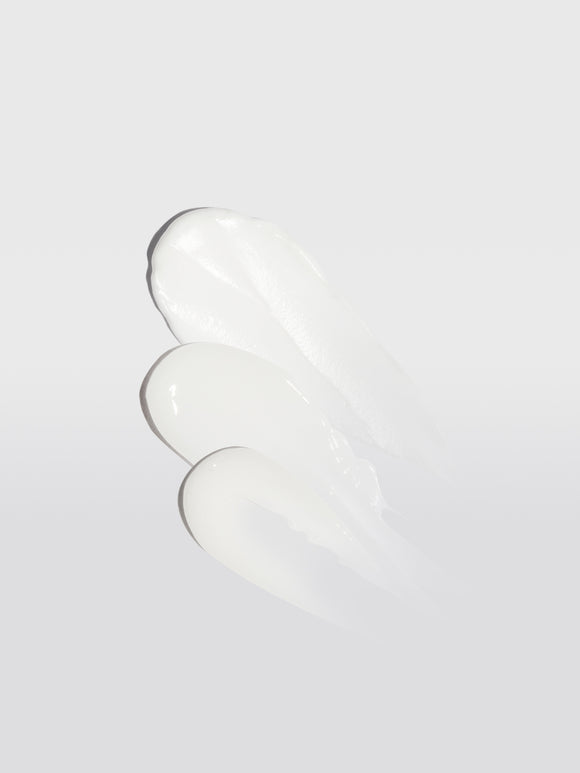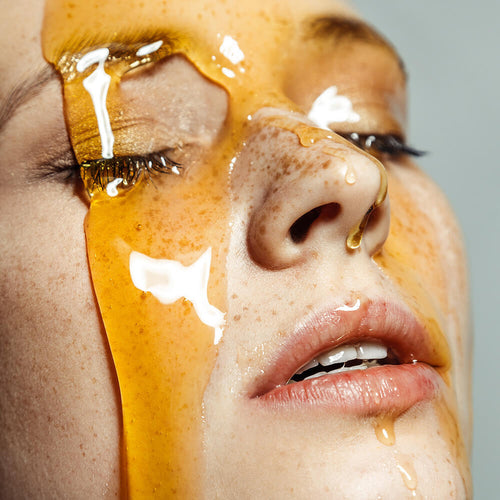
Ingredient Spotlight: Vitamin C
Everything you need to know about this brightening, collagen-boosting superstar.
Published:
3 minute read
Vitamin C has achieved superstar status in the skincare world — and with good reason. This antioxidant wonder has been linked to some serious skin benefits, from brightening to firming to counteracting sun damage. Here’s everything you need to know about adding vitamin C to your skincare routine.
Article Quick Links
What is vitamin C?
This water-soluble nutrient, also known as ascorbic acid, can’t be produced by the human body. Technically, this makes it an “essential” vitamin. It’s found naturally in many fruits and vegetables, including:
- Citrus fruits like oranges
- Strawberries
- Kiwi
- Leafy greens like kale and spinach
- Brussels sprouts
What does vitamin C do for skin?
This compound essential for skin health is one of the most well-researched ingredients. Studies show an array of skin benefits, including:
- Antioxidant protection: neutralizes free radicals to prevent oxidative damage
- Stimulates collagen synthesis: acts as a cofactor for collagen-producing enzymes
- Inhibits melanin production: interfering with the tyrosinase enzyme
- Enhances skin barrier function: helps prevent transepidermal water loss (TEWL) by enhancing natural moisturizing factors (NMF)
- Soothes inflammation: help reduce redness and swelling in the skin via anti-inflammatory properties
- Supports wound healing: promotes collagen synthesis, crucial for repairing and healing skin damage
- Protects against sun damage: provides a secondary layer of protection against UV rays by combating free radical damage
Dr. Pimple Popper's Vitamin C Picks
What skin concerns does vitamin C treat?
With so many inherent skin benefits, it’s no surprise that vitamin C helps address a myriad of skin concerns. Highlights include:
- Protects against fine lines and wrinkles
- Enhances skin elasticity and firmness
- Brightens skin and reduces dullness and hyperpigmentation
- Minimizes under-eye circles
- Strengthens the skin barrier
- Boosts hydration
- Reduces photodamage
- Enhances healing
What’s the best form of vitamin C?
In skincare, the most well-researched, and commonly-found, form of vitamin C is L-ascorbic acid. However, you’ll find a variety of vitamin forms listed on labels — each with its own characteristics and potency. These other forms, known as “derivatives,” are converted within the skin to L-ascorbic acid, which makes them less potent, but offers additional benefits.
Here’s a roundup of some of the most common and effective vitamin C ingredients:
- L-ascorbic acid: highly potent, but unstable and potentially irritating
- Ascorbyl palmitate: fat soluble, which integrates well with skin’s lipid layers
- Sodium ascorbyl phosphate: stable in water-based formulas and beneficial to acne-prone skin
- Magnesium ascorbyl phosphate: stable, hydrating and suitable for dry and sensitive skin
- Ascorbyl glucoside: highly stable and gentle, making is suitable for sensitive skin
- Ethyl ascorbic acid: highly stable and versatile because it’s both oil- and water-soluble
Is vitamin C good for all skin types?
Vitamin C is beneficial for people of all ages — and all skin types. Because it helps prevent premature aging, it’s best to incorporate it into your skincare routine before you start to see those signs of aging. Those with highly sensitive skin may experience irritation when using highly reactive forms of vitamin C.
Choosing formulas with milder vitamin C derivatives, and/or formulas that include skin-soothing ingredients may help reduce those side effects. As always, perform a patch test if you’re concerned about how your skin may react to a vitamin C product.
What’s the best way to work vitamin C into your skincare routine?
When searching for a vitamin C product, look for packaging that’s opaque and airtight, because light and air can oxidize the formula. This is particularly the case for pure L-ascorbic acid, while vitamin C derivatives are typically more shelf stable — which means they’ll retain their potency in the packaging for longer periods of time.
Vitamin C works best when it’s left on the skin, so choose serums and moisturizers rather than cleansers, which are washed away. You can use vitamin C in the morning and/or the evening, but be sure to wear sunscreen daily, since UV light degrades the ingredient’s effectiveness.
Vitamin C combines well with other antioxidants like vitamin E, ferulic acid, and niacinamide. It also works well with skin hydrators like hyaluronic acid. Most dermatologists suggest not using vitamin C at the same time as retinol or benzoyl peroxide — instead, alternate morning/night or every other day.

Dr. Lee's Last Word
Vitamin C is one of the most well-researched and beneficial vitamins you can apply topically. Ongoing use has been shown to protect against premature aging, brighten the skin, and even boost collagen production. It’s now available in a variety of forms, many of them suitable for all skin types.



